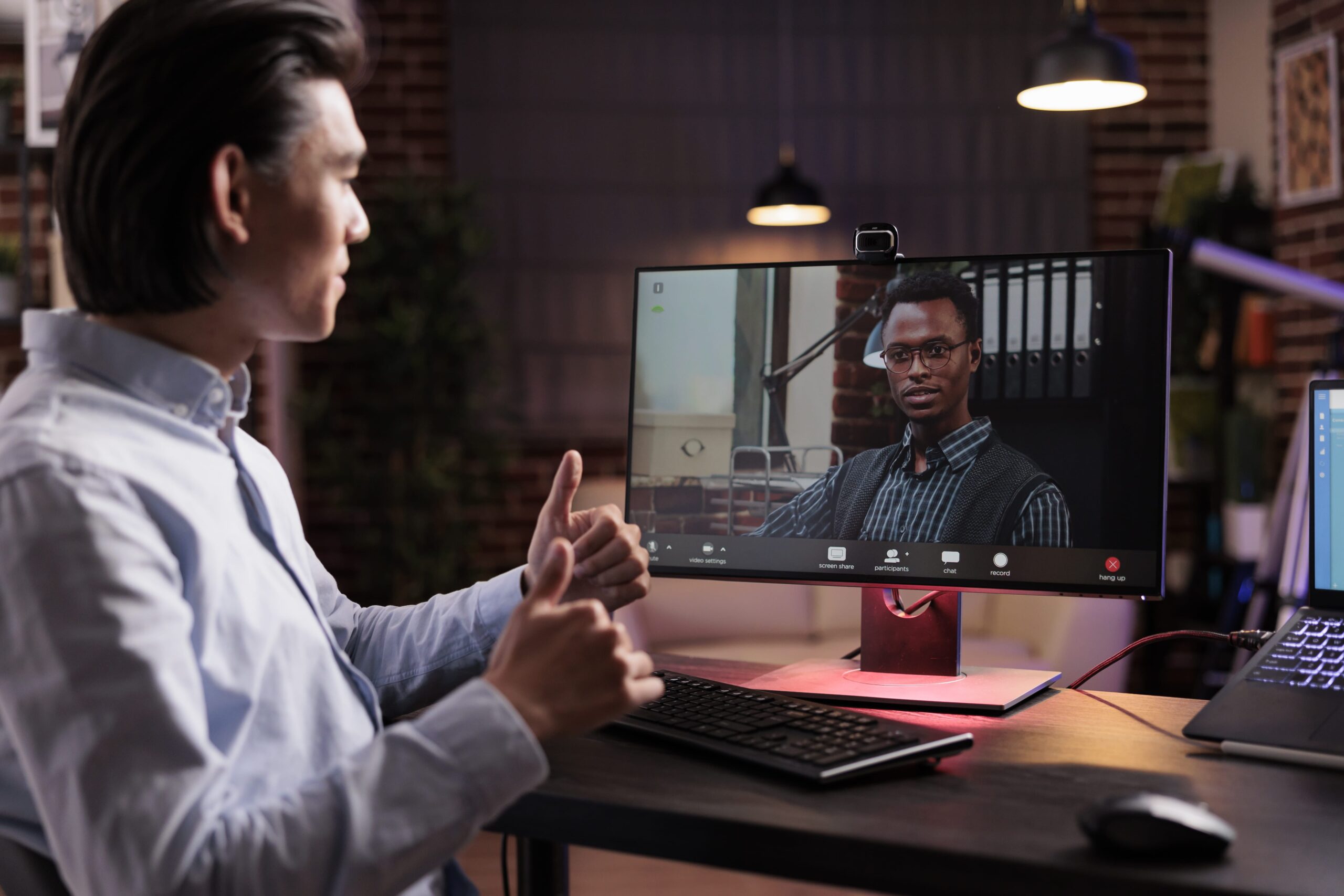Remote recruitment agencies are increasingly focused on hiring SEO specialists who can drive organic growth for companies across industries. With the rise of remote work, more businesses are partnering with remote recruitment agencies to find top SEO talent worldwide. For an SEO specialist, excelling in interviews means balancing technical know-how and a strategic mindset to adapt to ever-evolving search engine algorithms. Whether you’re preparing for an interview with a traditional company or working through a remote employment agency, understanding the right questions is key to landing the job.
In this article, we’ll walk you through the top interview questions that potential employers, recruitment agencies, and hiring managers might ask an SEO specialist in 2024. These questions touch on various aspects of SEO, including technical SEO, content strategy, link building, and local SEO.
Key Takeaways
Prepping for Remote SEO Specialist Interview
Navigating SEO specialist interviews requires a blend of technical expertise and strategic thinking. As search engines constantly evolve, candidates must showcase their ability to adapt and solve complex optimization challenges. Interview questions typically explore areas like on-page optimization, content strategy, and link building to assess a comprehensive understanding of SEO dynamics.
Technical SEO questions are central to these interviews, focusing on site architecture, mobile optimization, and page speed. Employers seek to evaluate a candidate’s ability to diagnose and resolve issues that impact a website’s crawlability and indexability. Additionally, behavioral questions help identify problem-solving skills and adaptability, ensuring the specialist can thrive in the ever-changing SEO landscape.
Preparing effectively by highlighting past successes and key soft skills can set candidates apart. Understanding the common question categories allows applicants to confidently present their knowledge and experience, positioning themselves as valuable assets to any SEO team.

General SEO Interview Questions
General SEO interview questions assess a candidate’s foundational knowledge and understanding of search engine optimization principles. These questions help determine if the candidate possesses the essential skills to develop and implement effective SEO strategies.
1. What Is SEO and Why Is It Important?
SEO, or Search Engine Optimization, enhances a website’s visibility on search engines like Google. It drives organic traffic, increases brand awareness, and improves user engagement. Effective SEO strategies lead to higher search rankings, attracting potential customers and boosting business growth.
2. Explain the Difference Between On-Page and Off-Page SEO
On-Page SEO involves optimizing elements within a website to improve its search engine ranking. Key aspects include:
- Content Quality: Creating relevant and valuable content targeting specific keywords.
- HTML Tags: Optimizing title tags, meta descriptions, and header tags.
- Internal Linking: Structuring links within the site to enhance navigation and authority distribution.
- Site Structure: Ensuring a logical and user-friendly website architecture.
Off-Page SEO focuses on activities outside the website to increase its authority and credibility. Key elements include:
- Backlink Building: Acquiring high-quality backlinks from reputable websites.
- Social Media Engagement: Promoting content through social platforms to increase visibility.
- Brand Mentions: Gaining mentions and references from authoritative sources.
- Guest Blogging: Contributing content to other websites to earn backlinks and reach new audiences.
3. What Are the Key Google Ranking Factors?
Google ranking factors determine a website’s position in search results. Key factors include:
| Ranking Factor | Description |
|---|---|
| Content Quality | Relevant, well-researched, and valuable content for users. |
| Backlinks | Quantity and quality of external links pointing to the site. |
| Mobile-Friendliness | Website responsiveness and usability on mobile devices. |
| Page Speed | Loading time of web pages, affecting user experience. |
| Secure Sockets Layer (SSL) | Ensures data security, indicated by HTTPS in URLs. |
| User Experience (UX) | Overall site usability, including navigation and layout. |
| Domain Authority | Age, history, and overall strength of the domain. |
| Technical SEO | Proper indexing, crawlability, and site architecture. |
| Structured Data | Use of schema markup to enhance search result listings. |
| Social Signals | Engagement metrics from social media platforms. |
Technical SEO Interview Questions
Technical SEO interview questions evaluate a candidate’s ability to optimize website infrastructure for search engines. These questions address key areas such as site architecture, mobile optimization, and indexability.
1. What Is a Canonical URL and Why Is It Important?
A canonical URL designates the preferred version of a webpage to search engines. It prevents duplicate content issues by indicating which URL should be indexed. Implementing canonical tags ensures that ranking signals consolidate to the chosen page, enhancing SEO effectiveness.
2. How Do You Perform a Technical SEO Audit?
Conducting a technical SEO audit involves using tools like Semrush’s Site Audit to identify issues affecting SEO performance. The process includes analyzing site speed, mobile-friendliness, HTTPS status, canonicalization, duplicate content, broken links, redirects, sitemap status, robots.txt, crawlability, indexability, internal linking, and structured data. Prioritizing these issues based on their impact and urgency allows for effective resolution and optimization.
3. What Are Core Web Vitals and How Do They Impact SEO?
Core Web Vitals assess website performance through loading speed, interactivity, and visual stability. They consist of Largest Contentful Paint (LCP), Cumulative Layout Shift (CLS), and First Input Delay (FID). Optimizing these metrics improves user experience, which directly influences search rankings. Meeting Core Web Vitals standards is crucial for maintaining and enhancing a website’s SEO performance.
Content Strategy and Optimization Questions
This section explores key questions related to content strategy and optimization crucial for SEO specialists.
1. How Do You Optimize Content for Both Search Engines and Users?
Optimizing content involves balancing keyword integration with user-centric design. She creates high-quality, informative content that naturally incorporates target keywords. Implementing relevant long-tail keywords enhances search relevance, while using subheadings and bullet points improves readability. This approach increases organic traffic by 50% and lowers bounce rates by enhancing user engagement. Additionally, she ensures that metadata, such as title tags and meta descriptions, accurately reflect page content to align with search engine algorithms and user expectations.
2. What Is Keyword Research and How Do You Conduct It?
Keyword research identifies terms users input into search engines to find relevant content. He employs a two-step approach: compiling seed keywords and expanding them using tools like Google Keyword Planner and SE Ranking. Analyzing Google Search Console query data informs on-page optimization, while competitor research reveals top-performing keywords and content strategies. Utilizing Google Trends, he monitors search trends to refine keyword lists, ensuring content remains current and competitive. This method results in a 35% increase in organic traffic and a 450% return on investment within the first year.
Link Building and Off-Page SEO Questions
This section covers essential interview questions focused on link-building and off-page SEO strategies. These questions assess a candidate’s ability to enhance a website’s authority and visibility through effective backlink management.
1. What Are Effective Link Building Strategies?
Effective link-building strategies include:
- Broken Link Building: Identifying broken links on high-authority websites and offering replacement links to relevant content.
- Guest Blogging: Contributing content to reputable industry sites to earn high-quality backlinks and establish authority.
- Content Promotion: Sharing valuable content through social media and email outreach to attract natural backlinks.
- Resource Link Building: Creating comprehensive resources that other websites reference as valuable information sources.
2. How Do You Evaluate the Quality of a Backlink?
Evaluating a backlink’s quality involves:
- Domain Authority: Assessing the referring site’s authority score using tools like Moz or Ahrefs.
- Relevance: Ensuring the linking site is relevant to the niche or industry of the target website.
- Anchor Text: Analyzing the anchor text for relevance and avoiding over-optimization.
- Link Placement: Checking if the backlink is placed within the main content or in less valuable areas like footers.
- Traffic Metrics: Reviewing the referring site’s traffic using analytics tools to gauge potential referral benefits.
Local SEO Interview Questions
Local SEO interview questions assess a candidate’s ability to enhance a business’s visibility within specific geographic areas. These questions explore strategies, tools, and techniques used to optimize local search performance.
1. How Do You Optimize a Website for Local Search?
Optimizing a website for local search involves several key strategies:
- Google My Business (GMB) Optimization: Ensure the GMB listing is complete and accurate, including business name, address, phone number, and operating hours. Adding professional photos and regular posts increases visibility.
- On-Page SEO: Incorporate local keywords naturally within title tags, meta descriptions, headers, and content. Include the city or region name to target local searches.
- Local Citations: Submit consistent business information to reputable local directories and websites to enhance search engine visibility.
Preparing for an SEO specialist interview requires thorough knowledge of both basic and advanced SEO principles. Whether you’re working with a remote recruitment agency or attending an interview in person, these top SEO questions will help guide you through the process and showcase your SEO expertise. As SEO continues to evolve, demonstrating your adaptability and technical skills is crucial for standing out in the hiring process.
Partnering with a remote recruitment agency specializing in digital marketing roles can also improve your chances of finding the perfect opportunity in this competitive field.
Discover Remote Jobs with Bionic Talent
Bionic Talent is a leading overseas recruitment agency operating in 15+ countries, we specialize in connecting top talent with companies in the USA. Whether you’re an SEO specialist or have expertise in another field, we can help you find the perfect remote role that matches your skills and ambitions.
Don’t miss out on the chance to work with some of the best companies in the industry! Connect with us today and let Bionic Talent guide you on your journey to success in the world of remote work.




